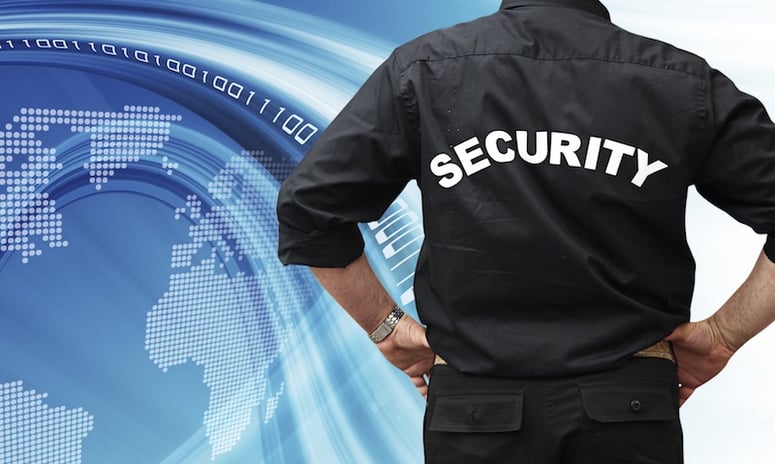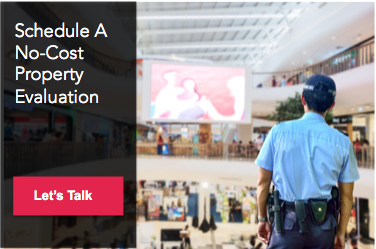Security officers around your business help deter criminal activity and make people around the property safer, which in turn can help grow your customer base. However, misconceptions of security officers commonly depict a different image. People may think security officers are not well trained or don't understand different business protocols. When hiring a company to provide security officers for your building, it's important you know the officers are professional, effective and can quickly adapt to your specific needs. As those qualities are important, this article explains common misconceptions people may have about security officers and what you can really expect when hiring officers for your business.

Not All Security Officers Carry Firearms
Some businesses may be hesitant about having firearms around the property. Although reputable security companies have licensed and trained officers that carry firearms, there is still the option of having well trained and licensed officers that are unarmed. All security officers provide a level of safety by their presence on a property. Armed security officers provide a different perception to customers and or visitors to a property due to them being armed. If you are business that protects money or houses expensive jewelry and other costly objects, an armed guard is most likely a sensible choice to consider.
Many businesses choose unarmed officers because they still help prevent criminal activity without being the possible cause or source for violence. That being said, armed officers still provide stronger deterrent but unarmed officers will have less liability issues if an incident were to occur. Work with your company and go through all the options with them to better decide what security officers will be best for your business.
Officers Also Have Technology Training
With new security technology rapidly developing, security officers are trained to do more than most people might think. It's a common misconception to assume security officers are only trained to canvas the location and act if an incident were to occur. However, officers possess extensive training in multiple security tactics including technology. This means that officers are effectively trained to handle everything from alarms to screening devices. Officers will need to learn how to use high-tech security breaching services and access control systems. Therefore, officers will be able to handle all types of security issues that may occur at a business whether that be a physical or technological issue.
The Main Safety Focus Is Prevention
One of the main jobs of a security officer is not to disarm problems and to provide protection, although they have the training to do so. Rather, it is to provide prevention. The presence of a security officer, especially one who is armed, creates a heightened level of security that is less likely for individuals to start a problem. Security violations are more likely to occur in unprotected areas than in a protected area where an officer is present. For this reason, many businesses, hospitals, gated communities and schools use security officers as a prevention method. This basically stops the problem before one even occurs to proactively increase the level of security and protection for any location.
Officers Are Educated And Physically Fit
Despite what most mainstream movies like Paul Blart Mall Cop lead you to believe, security officers working with a reputable security company are well educated and physically fit. In fact, before hiring a prospective officer, security companies require the officers are overall physically fit and they must also complete an aptitude test.
USI has created a highly selective process for reviewing candidates for employment resulting in an acceptance rate of 1 in 10 candidates, and one of the highest percentages of former law enforcement and military personnel than any other security firm in our market. USI’s 10-Step Plus Employee Selection Process is the foundation for quality service by supporting our ability to hire the right people the first time improving performance and retention.
Officers Are Trained To Protect Various Types Of Businesses
Every client’s risks and business objectives are different requiring customized approaches, policies, procedures and requirements. Work with a security company who's officers will have on field training specific to your business. The security company should work with you to develop security officer staffing solutions for either armed or unarmed officers that cost-effectively address your challenges while supporting your business. Unlike, what most people believe, security officers understand that each business is different and are have different security objectives in mind that need to be met. For instance, some businesses like a jewelry store may want an officer to keep an eye out for potential thieves, have the ability to analyze security camera footage and also have customer service skills if needed. While larger companies with a heavy flow of people may need officers to control all access points, understanding of the data network infrastructure and extensive knowledge of first aid as well as CPR. Whatever your specific security needs are, make sure you work with a security company that will provide an in-depth consultation that will help you analyze specifically what type of security will work best for you.
USI | Security Officer Staffing Solutions
We know every client’s risks and business objectives are different requiring customized approaches, policies, procedures and requirements. Our management and field personnel work with you to develop security officer staffing solutions for either armed or unarmed officers that cost-effectively address your challenges while supporting your business.
Need to hire officers and enhance your property's security? Click below to schedule a no-cost consultation and property evaluation.


